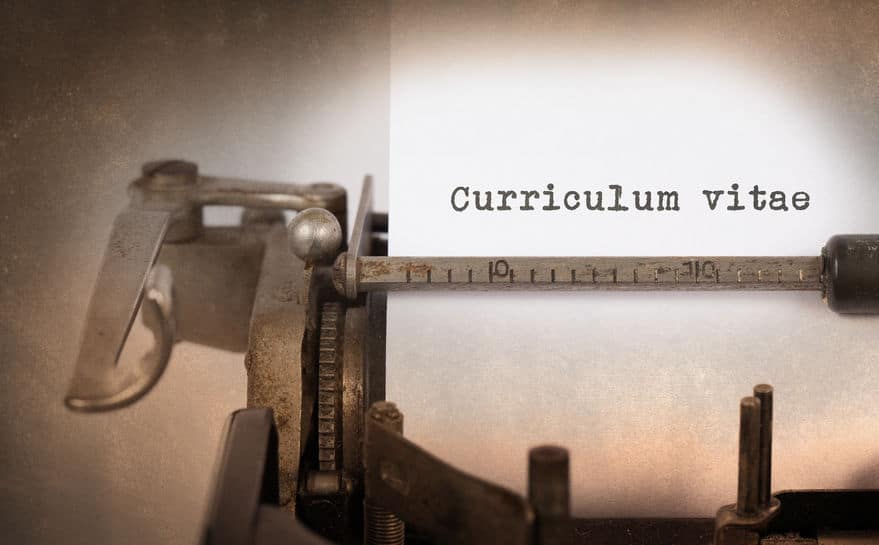
By Deborah Vieyra
Your academic CV (short for curriculum vitae) is a comprehensive summary of your scholastic achievements and experience. More detailed than a professional resume, which is typically used to apply for jobs, a CV is used to apply for academic and research positions, including academic and postdoctoral fellowships. This document connects the dots of your intellectual history, focusing specifically on how they relate to your academic trajectory.
While a professional resume should be as succinct as possible—preferably truncated into one or two pages—your academic CV is not limited to a specific page count, allowing more room to expand on relevant information. Think of your resume as a movie trailer, while your academic CV is more akin to the whole film.
You must remember however that a good film needs a good editor. You do not want to come across as if you have a grandiose sense of your own importance. It is still important to use discernment when it comes to deciding what should be included and what items should be kept only for your mother to brag about. How then should you target your CV for academia, ensuring that you master the trapeze of communicating your history without inflating the significance of each part of it?
Here are three tips that will help you focus your academic CV so that it highlights the best possible you.
#1 Break your CV into specific categories
Rather than listing your professional experiences as a timeline (as you might with other kinds of professional resumes), break your academic CV down into specific categories. Within each section, you can then list relevant items chronologically. This will give you the opportunity to tailor each section to highlight your most significant attributes and achievements.
Of course, a section detailing your education is of utmost importance. Start with your most recent degree. Include your degree name, institution, and where applicable, thesis title and supervisor name. Indicate any minor areas of specialization that you believe are worth mentioning which, even if not directly relevant to your career trajectory, may display an academic curiosity and diversity of thought. If you have been the recipient of any academic awards or fellowships, include this as a separate section below your education.
The following sections will have to tell the story of your relationship to your field, and how you have and will benefit it. Your experience can be further broken down into subcategories of research, teaching, and professional experience. In each case, try to find a way to align your experience with how you think you will be an asset to your specific field.
#2 Tailor your CV specifically for academia
Make sure that everything listed on your CV is relevant to the academic world. Only list work experiences that have a bearing on your world as a scholar, teacher and researcher. This will help you decide both what to include and what to leave out. Assess each job and community service engagement for its applicability to your application. How does it help your argument that you will be an asset to a specific department or research role?
Furthering this, ensure that you are constructing your cv with the intended audience in mind. If you are applying for an associate professor position, your CV may look different to that which would accompany a PhD application.
#3 Have experienced academics review your CV
Before submitting your academic CV, get it read by a critical eye. Find someone who is versed in the language of academia, such as a mentor from your postgraduate work, a professor you found inspiring, or your graduate or PhD supervisor. If possible, see if you can get someone who works in university administration to review your CV as well. They have seen many applications pass their desks and will be able to tell you quite quickly if anything appears to work against you.
Preparing an academic CV is an opportunity to look at what you have accomplished, as well as map out where it is that you would like to go in the future. It may help you clarify what your research interests really are or even see a hidden path through your work that you may not have noticed before.
Good luck! This is your opportunity to show the institutions of your choice why you will be the perfect candidate for them.
Deborah Vieyra is a Fulbright alumna from South Africa who completed her MA in Applied Theatre Arts at the University of Southern California. She now works as a writer, proofreader and performer in Vancouver, Canada.
© Victoria Johnson 2018, all rights reserved.